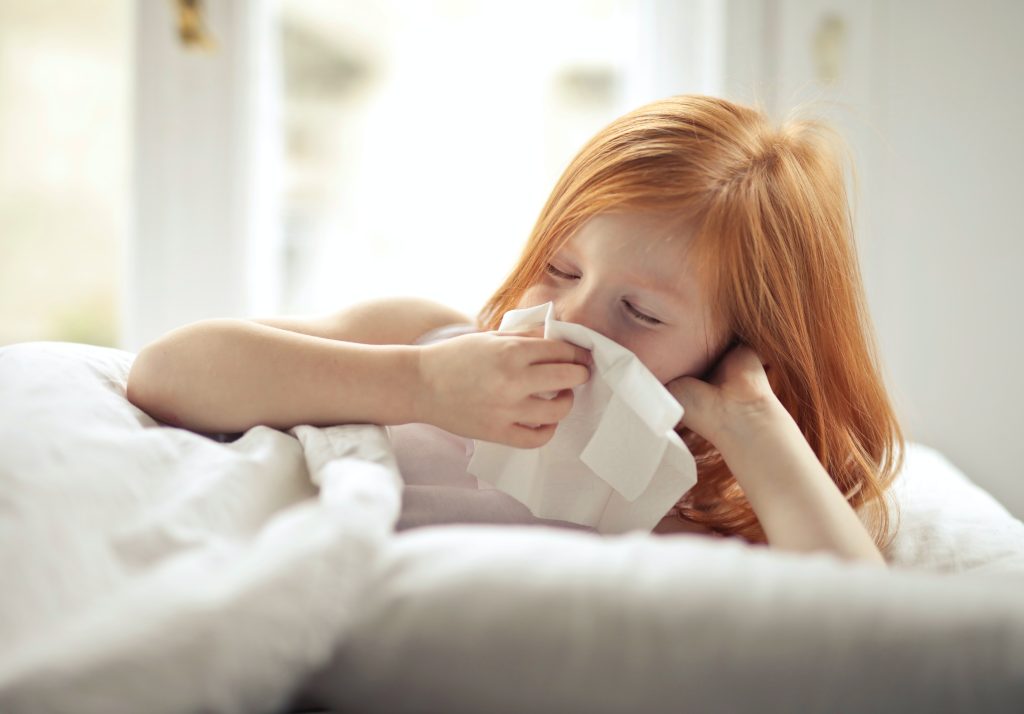Allergies affect most of the population daily; whether it be from the environment, food, medications or other substances. While most of us are lucky enough not to experience severe allergic reactions, complications and even death due to anaphylaxis from allergies are a genuine threat for one out of every thousand people according to the 2022 Critical Allergy Stats.

So I was truly surprised when I found out that you can’t buy EpiPens in China. Even if you don’t suffer from allergies yourself, I’m sure you’ve heard of EpiPens. An EpiPen is a hypodermic device that administers a dose of epinephrine, used for the emergency treatment of an acute allergic reaction.
To find out more about why EpiPens aren’t available here, and what alternatives there are, jingkids spoke to Dr Kim John Ly from Beijing United Family Hospital.

Dr. Ly is a licensed general practitioner/family physician and pharmacist from the United Kingdom with over 20 years of healthcare experience in both the private and public sector. He received his Master of Pharmacy Degree from the UCL School of Pharmacy, his MBChB from the University of Leicester, and is a member of the Royal College of General Practitioners and the Royal Pharmaceutical Society of Great Britain. He also holds a diploma in sexual health and reproductive healthcare (DFSRH) from the Royal College of Obstetricians and Gynecologists. He became a fellow of the Royal Society for the Promotion of Health in 2007.
Q: I understand that epi-pens are not allowed in China? Why is that?
Dr Ly: EpiPen (licensed by Mylan) is one of many branded epinephrine/adrenaline auto-injector (AAI) devices on the global market for treating anaphylaxis. Currently, there are no AAIs registered in mainland China, so they are not available due to exclusive licensing rights. However, last year a Denmark based allergy company, ALK, planned to launch its AAI called Jext in China via a collaboration with Chinese company Grandpharma, who paid for the right to sell Jext. This is expected to be the first AAI to market in China.
If patient is to carry their own AAI from abroad, a prescription or medical certificate from the prescriber will be necessary to prove that it is for patient’s own medical use.
Note: Adrenaline (is the British approved name in UK) and epinephrine (is the WHO’s recommended international non-proprietary name and USA adopted name) are both the same active pharmaceutical ingredient. USA use the term epinephrine instead of adrenaline because Parke, Davis and Co marketed the extract under the proprietary/brand name Adrenalin, and so epinephrine became the generic name in America.

Q: What are the available alternatives here?
At Beijing United Family Healthcare we have an epinephrine anaphylactic kit available for our patients with a history of anaphylaxis. The kit consists of epinephrine 1mg/ml ampoules, ampoule cutter, syringe and alcohol swabs. Our experienced pharmacists teach the patient and their parents/guardians how to open the ampoules, draw up the appropriate dose of the medication and administer it correctly when dispensing the medication. Adrenaline is a prescription only medication and cannot be purchased over the counter.
Q: What is your advice on dealing with allergies, especially in kids, in Beijing?
Allergy is an abnormal hypersensitive reaction mediated by our own immune system in response to a substance, which we call the allergen. It consists of a spectrum of symptoms of varying severity. At the severe end of the allergy spectrum we have anaphylaxis, which is a medical emergency, and defined as a “severe, life-threatening, generalised or systemic hypersensitivity reaction characterised by rapidly developing life threatening airway and/or breathing and/or circulation problems usually associated with skin and mucosal changes” following exposure to an allergen.
Children with suspected anaphylaxis should be referred to an allergy specialist, and prescribed an epinephrine/adrenaline kit by their family medicine doctor or ER doctor as an interim measure before their allergy specialist appointment. Patients can make an appointment to see one of our clinical allergist at Beijing United Family Healthcare.
Indications for prescribing an AAI include:
- People with a severe allergic reaction involving the airway and/or low blood pressure
- People whose reaction is triggered by an unavoidable allergen
- People with a localized reaction (not involving the airway) in a person who is considered high risk (e.g. people with asthma)
- Likely repeated exposure to allergen
- Lack of access to emergency care
On the less severe end of the spectrum, allergy symptoms can present as sneezing, watery eyes, irritated nose, itchy rash and more. These symptoms are annoying and often make it hard to focus, concentrate and sometimes hard to get a restful night.

At United Family Healthcare our family medicine doctor can prescribe allergy tests to explore potential allergens including, but not limited to, cat dander, dog dander, tree pollen mixture, grass pollen mixture, mould mixture, egg, nut mixture, fruit mixtures, wheat, sesame, crab, shrimp, milk, penicillin and more.
Measures to reduce or minimise exposure (e.g using air purifier, wearing face mask, keeping windows shut when pollen count is high), or avoiding the known allergen (e.g. not eating foods that trigger the allergy) can help limit the symptoms experienced. Also medications such as antihistamines, allergy eye drops, allergy nasal sprays and nasal douches can be prescribed by a family medicine doctor to provide symptomatic relief.
There is evidence that vitamin D deficiency is positively correlated with an increased prevalence for allergies. Vitamin D is also an important hormone for child growth due to its effect on calcium homeostasis and bone mineralization, but also for the proper functioning of the immune system.
In view autumn is here and winter is approaching soon, less sunshine and increased indoor activity means our exposure to sunshine is decreased and our ability to generate vitamin D is reduced. To maintain an adequate level of vitamin D, foods rich in vitamin D such as eggs, salmon fish, fortified cereals and fortified milk, or vitamin D supplementation is recommended.
KEEP READING: Navigating Allergies in Beijing’s International Schools
Images: Pexels, Beijing United Family




